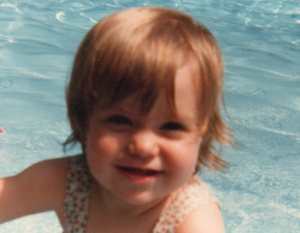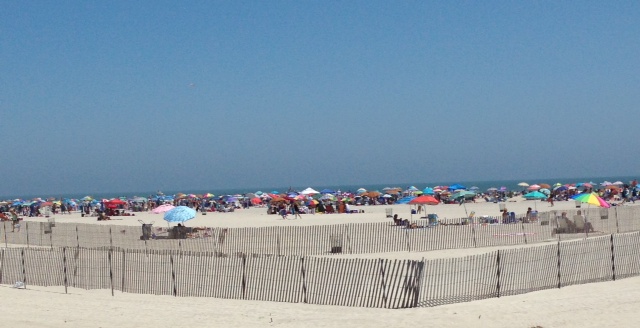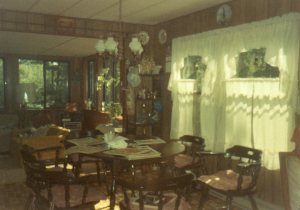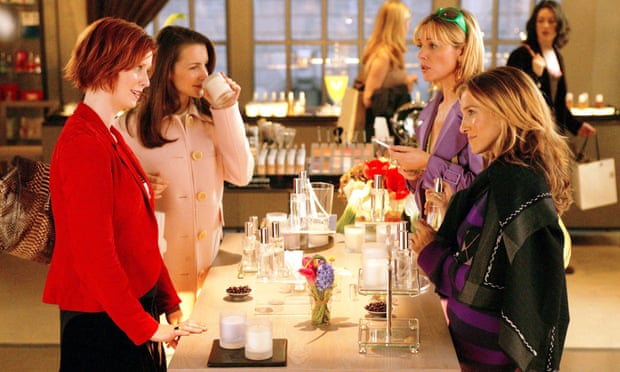When I left school, I was shockingly underprepared for the world of work. I had done some work study and some temp jobs while in college, and I thought all jobs would be like that: show up on time and reliably, do a bit of good work but also mess around on the internet, and everyone would be cool. I also thought it would be really easy to get a job, since I had fallen into one job after another from the moment I started working. To top it all off, I had no idea what kind of jobs were out there. I had a degree in English and French and couldn’t think of a single thing to do with it other than write or maybe teach, a possibility I was considering at the time, but didn’t have the money for. It was a long road to get to teaching, the career I have today. Even then, I had to start my career from scratch when I got to the UK. So here is a brief catalogue of my missteps on that road:
Interview disasters
Nobody told me about interviews, and what to do, and how to behave. I thought it was actually kind of fun–sit down, talk about myself, be honest, and they would hire me. I candidly told more than one potential employer that in 5 years I saw myself as a novelist. I also neglected to read up on companies before interviewing with them and didn’t take notes. When I didn’t get second interviews I was utterly baffled. Thinking back now, I shake my head at myself. Sometimes I start to go into an embarrassment spiral, but I talk myself out of this one: really, how was I to know? I spent four years at college sharpening my mind, not honing my business acumen. I could write 20 page papers in French, but I had to be taught how. Similarly, interviewing is a skill which must be taught, and nobody had taught me. I was lucky that when I interviewed for teaching posts, my candid answers were exactly what principals wanted to hear.
Job fails
My first full time job out of college was when I was living in North Carolina. It was for an education non-profit (as close as I could get to teaching without a master’s) and the people were noble minded and lovely. And I totally took advantage of them by spending most of my day on the internet and doing a bit of work. My boss had to give me a real dressing down, but she was so nice about it I didn’t really take in the lesson. In retrospect, she probably should have fired me, she was just too nice.
My next job was when I was back in New York, and my friend got me the job. I continued in my entitled ways, and they were a lot less understanding. Although to be fair, I wasn’t nearly as bad because I had barely gotten my foot in the door before they fired me. And I burst into tears, both in front of my boss and the HR lady, and then later on the subway. I had never been fired before–I was 22 and was used to getting praise for my work. But high flyer in the English and French departments of a small liberal arts college doesn’t translate to anything in NYC offices. I have to say though, standing over me while I packed up my stuff and escorting me out of the building was a little much. I mean, they were basically firing me because I was acting like a stupid kid. What did they think I was possibly capable of carrying away? It would have been humane to at least give me a minute to pack up my stuff and gather the shreds of my dignity. The random people on the subway were much nicer. As I sobbed uncontrollably, two people dropped a note in my lap, which read ‘Don’t cry. Everything will be ok. From two people who love you.’
I then embarked on a year of temping, which went great, but of course people expect very little of temps so I was a superstar. They did interview me to go permanent at one place, but weren’t keen when I told them I wanted to be a writer. My next permanent job was for a linen company, and honestly one of my bigger missteps was not holding out for positions which were better suited to me. Seriously–let this be a cautionary tale because there are so many mistakes.
The linen company had some really cool people working at it and I did get to talk to Connie Chung on the phone once, but my boss was awful, and we basically spent 9 months in passive aggressive warfare. She clearly thought I was being an entitled kid but didn’t give me any real direction about what to do better or what her expectations were. God forbid I sharpen her grammar when she gave me a handwritten letter to type up. Eventually she fired me too. In the end, I was so frustrated I didn’t cry. I saw it as a mercy killing, especially because I had already applied to become a NYC Teaching Fellow.
Finally, success. Ish.
The Teaching Fellows accepted me, and I started on a proper career, one I loved from the very first day. I made missteps aplenty my first year of teaching. I didn’t quite know how to teach the level of the kids, so I wound up teaching kids in Harlem like they were college students. I didn’t know how to put together a unit or assess their skills. But I loved literature, and I loved them from the first time I met them. I would not say I was universally beloved, and I still wouldn’t say that of my students, but I bonded with enough kids that I thought this job far exceeded anything I had done before. So I learned how to assess them, and tailor my lessons to their needs. I came home and cried because I couldn’t express the full range of my anger at school, and then the next day walked on air because the kid I had kind of wanted to kill had actually learned something.
Eventually I left teaching in the inner city to teach at Townsend Harris, my alma mater and a specialised high school for the humanities in NYC (read: only smart kids go there). And I thought as I signed out the copies of The Odyssey and Things Fall Apart that my classmates had used, that that was it. I had reached the last step in my career, and I would work at good ol’ THHS until I retired. I was barely in my 30’s, so that felt a bit weird, but I was also very happy. No more missteps. I knew THHS as a student, which helped me know it better as a teacher. I had confidence because I had security.
Until I didn’t, because I moved to the UK.
Beginning a career I’d been doing for 10 years
I didn’t think it would be very hard to switch from teaching in the US to teaching in the UK. After all, I had worked in a really tough school and a really good school in NYC. I had seen it all. But that wasn’t quite true. I was used to dealing with underprivileged kids who felt that the system was doing them wrong and privileged kids who bought wholeheartedly into the system. I had never dealt with the kids in the middle. I hadn’t ever had students who were apathetic. And most importantly, I had never taught students younger than 14. I quickly found you can’t treat those kids as adults.
My first UK job was a maternity cover/ general cover job. I had less prep periods than I should have had because I was constantly on call to cover classes. Nobody told me about the differences in systems, or what was expected. I had a coworker, who I felt was always trying to catch me out on grammar. She’d say things like ‘Oh…I can’t remember all the modal auxiliaries. I can think of can, may, might, could, would, will… What are the others?’ But in the US, no one uses the term modal auxiliary. At least, no one that I knew of, and after majoring in English and French and taking two other language classes besides, I knew a fair bit of grammar. Meanwhile I interviewed for a permanent job and there was an A level component. I barely understood the difference between A level and GCSE, and mining through and understanding what exactly AQA meant by genderlect in their English Language spec was a bit beyond me, particularly because in America, English is English, and there’s no distinction between language and literature. I still cringe a bit when I think of my interview lesson reviewing genderlect. I definitely took more of a lit crit approach than I should have done, and didn’t mention any of the theorists I am now so familiar with. Basically that grammar quiz teacher was sitting in the classroom internally rolling her eyes and me and thinking I didn’t know anything about my subject–humiliating, because I know that isn’t true.
If you’re going to move forward, you’re going to make missteps
Now I’m working at a 6th form college, which is another job I’ve come to love, especially since it consists of teaching only 16-18 year olds and teaching mostly English Language, which is essentially linguistics focused on English. I want to be as confident as I was at THHS, but I don’t think that’s going to be possible again. I’m not foolhardy enough to be that confident. Moreover, switching systems continues to have its issues. I’ve wrapped my head around the differences, but not everyone believes that. I have students who fret that I’m not preparing them for their (all important) exams because I haven’t spelled out how *every single lesson* could be used to answer a question. Meanwhile, Ofsted inspected us last year, and the inspector didn’t like that they had an ‘inexperienced’ teacher doing GCSE–even though that was my 10th year teaching. It took me ages to figure out what administrators wanted in an observed lesson. So while the learning curve is, as ever, extremely steep, I know there are still going to be moments where I go wrong, or where people think I’m going wrong. Not quite the same thing, but with the same effects. The key is taking it in stride–a lot easier said than done.
Write a new post in response to today’s one-word prompt. Not sure how to participate? Here are the steps to get started.
Source: Misstep














